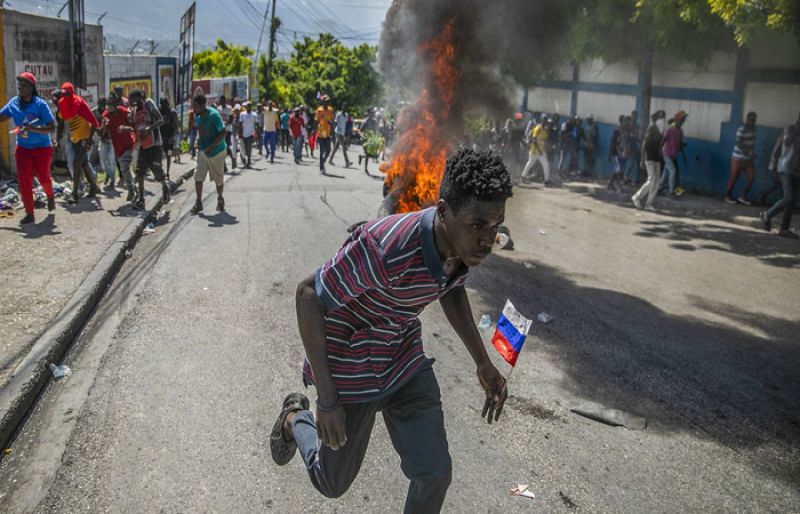
Panic descends in Haiti’s capital as police and gangs exchange fire overnight, while political leaders continue to debate the formation of a transition council.
Violence has flared again in Haiti, with gangs engaging in running gun battles with police, as the effort to push forward with a political solution to the crisis drags on.
Gangs launched an armed attack overnight on Monday, clashing with police in the capital, Port-au-Prince. The violence came as Prime Minister Ariel Henry appeared to question the promised establishment of a transitional council, planned to oversee the instalment of a new government.
Witnesses said gunfire broke out in the area of Champ de Mars, a big public park near the national palace, which is the presidential residence. The renewed violence, following weeks of chaos, ignited panic among residents.
At least five people were reported to have been killed around the city overnight, while scores were trapped for hours in the city centre.
At least four police officers were reported to have been wounded. Local media reports said police were forced to flee an armoured vehicle, which was then set on fire by the gangs.
The violence flared as outgoing Prime Minister Ariel Henry cast doubt upon the promised formation of a broad transitional council.
Racked for decades by poverty, natural disasters, political instability and gang violence, Haiti has had no president since the assassination of Jovenel Moise in 2021 and it has no sitting parliament. Its last election was held in 2016.
It descended into chaos in late February, when the country’s powerful armed gangs launched a campaign of violence, attacking police stations, prisons, and the airport.
More than 1,500 people were killed in the first three months of this year and about 60 were lynched by vigilante groups operating where police presence was lacking, according to a United Nations report.
The gangs demanded that Henry, who took power without being elected following Moise’s death, step down.
Henry, who remains stranded outside Haiti, announced on March 11 that he would do so once a transitional council, which would name a new prime minister, had been established.
However, its formation has been mired in disagreement among political parties and other stakeholders since.
Further raising the stakes, in a statement on Monday, Henry’s office suggested that the council has not yet been formed because Haiti’s constitution does not allow for such a body.
Henry is seeking advice from CARICOM, the Caribbean regional body overseeing this urgent transition process, the statement said.

In the meantime, as the gang violence continues, Haitians are ensnared in a severe humanitarian crisis with shortages of food, medicine and other basics.
The new US ambassador to Haiti, Dennis Hankins, arrived in the country on Monday, as the United States and other nations continue evacuating their citizens.
Mexico evacuated 34 of its nationals the same day, including seven minors and four diplomatic officials, on board a military ship.






